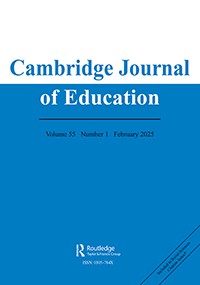This article presents reflections on research ethics beyond the boundaries of procedural requirements. It focuses on a doctoral study investigating how young refugees encountered England’s education system and discusses the relational ethics approach adopted throughout the research. A critical ethnography was conducted using arts-based participatory elements, semi-structured interviews and school-based observations at a secondary school in the south of England. The study’s goals were to amplify participants’ experiences by listening to the young people and their families, building trust with them, setting realistic expectations related to the research and engaging them in discussions about research dissemination plans. The adopted methodological choices showed that relational ethics is essential to creating an equitable and ethical research process by centring participants’ perspectives rather than the researcher’s. This article aims to demonstrate that conducting ethical research with refugees requires researchers to go beyond procedural ethics by enacting anti-exploitative research practices.
Read full article here.

